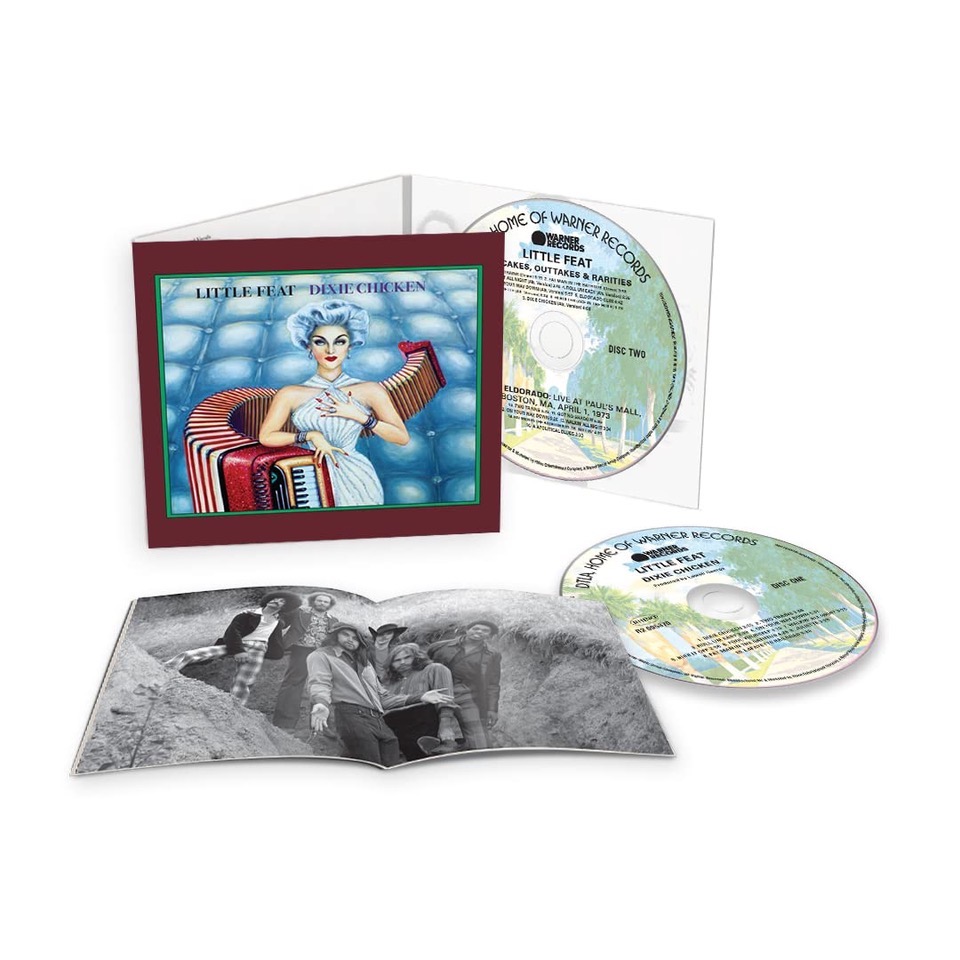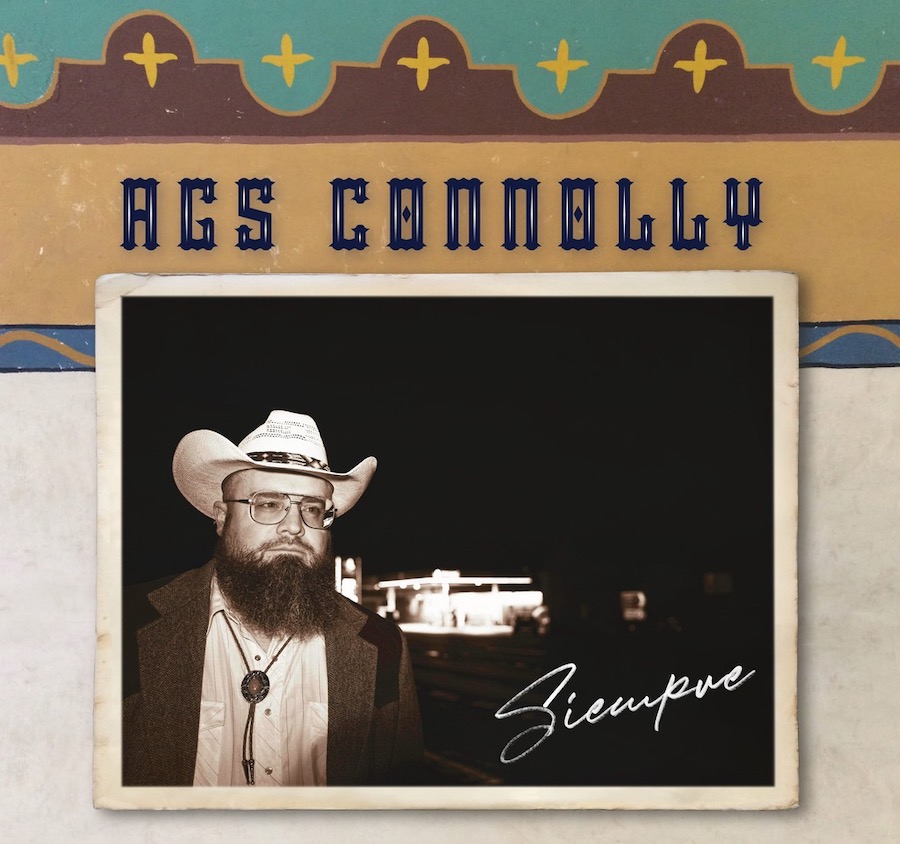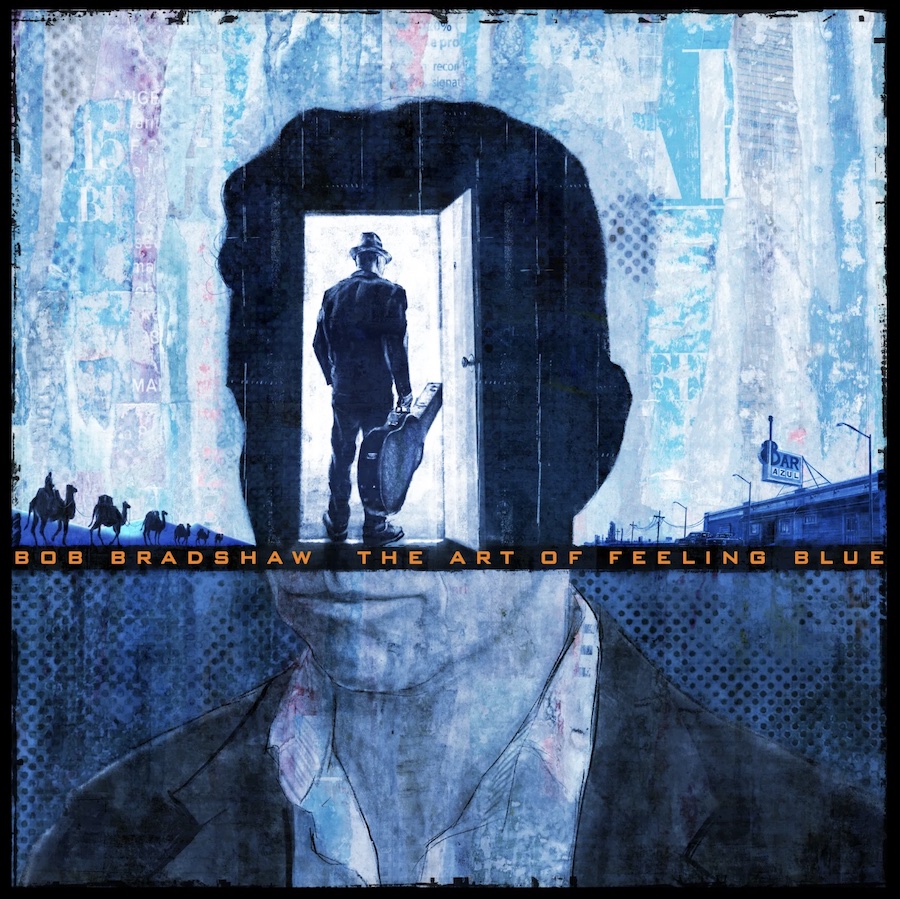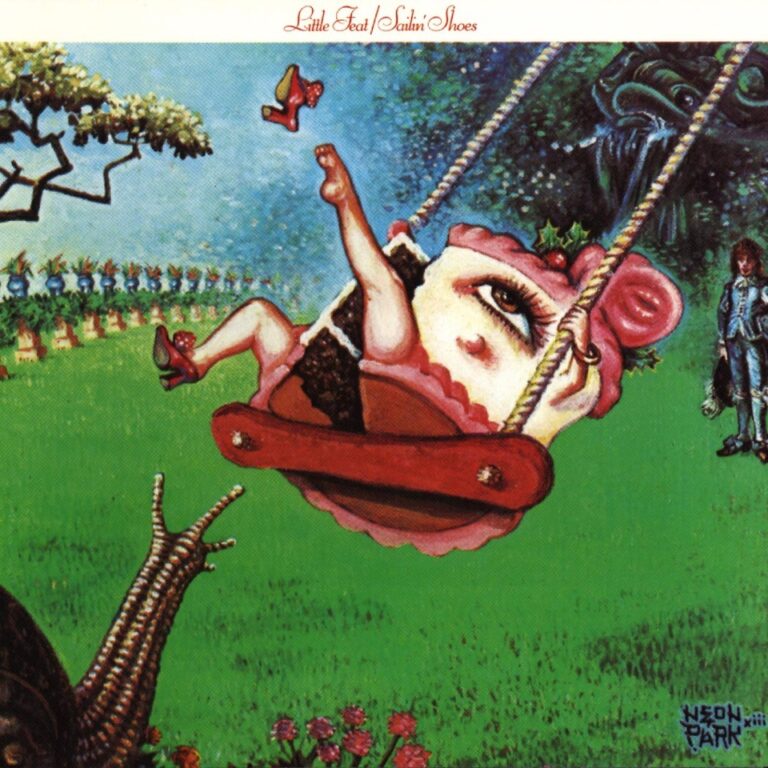With varying lineups over the years, Little Feat has released well over a dozen albums, but anyone who wants to explore its catalog needn’t think twice about where to start: the clear high points are Sailin’ Shoes, the Los Angeles band’s 1972 sophomore release, and Dixie Chicken, that album’s 1973 follow-up. Now, both those LPs have been reissued in expanded two-CD editions that combine remastered versions of the original records with a generous supply of studio and concert bonus tracks.
The critically acclaimed but commercially unsuccessful Sailin’ Shoes is where Little Feat finds its footing. With group co-founder Lowell George looming large over the proceedings as lead singer, guitarist, and author of most of the material, the band carves out a sound that’s rooted in country rock but wide-ranging enough to draw on blues, funk, and classic rock. (In fact, suggested George at the time, that may have been one reason it didn’t sell: “It was too diversified to be digested properly.”) The record is loaded with surprising chord changes, innovative ideas, and consummate musicianship.
Its best-known number, George’s “Willin’” – which also appears in a version with a somewhat faster tempo on Little Feat’s eponymous debut LP – showcases his ability to weave an evocative tale, in this case about a trucker who’s “driven every kind of rig that’s ever been made, driven the back roads, so I wouldn’t get weighed.” And that song – which has been covered by Linda Ronstadt, the Byrds, and many others – is far from the only winner on this album. Also here are a funky, harmonica- and slide guitar-enhanced cynical number called “A Apolitical Blues”; a full-throttle rocker titled “Teenage Nervous Breakdown”; and “Cold, Cold, Cold,” a rhythmic visit to hotel hell.
The 2023 reissue adds 21 bonus tracks, among them demo and alternate versions of “Willin’” and a complete 10-song 1971 concert at L.A.’s Palladium that includes about half the numbers from the sophomore album and a few from the group’s debut. Some of the demos and alternates have been previously released and several are not far enough removed from the well-known versions to be of great interest, but the propulsive live tracks are a big plus. Little Feat has issued no shortage of concert material over the decades, but a relatively small portion of it comes from its classic earliest years.

Dixie Chicken – which boasts consistently fine guitar work and clever songwriting – is even better than Sailin’ Shoes. George, who died in 1979, is again predominant, now as producer as well as writer and performer, but personnel changes give the band a funkier, more Southern sound: Little Feat replaced bassist Roy Estrada (like George, a veteran of Frank Zappa’s band) with Kenny Gradney and also added guitarist Paul Barrere and conga player Sam Clayton. Guest contributors include such singers as Bonnie Raitt, Gloria Jones, and Bonnie Bramlett. Among the album’s many highlights are the soulful sing-along title track; the lyrically deft “Fat Man in the Bathtub”; “Juliette,” which finds George playing a jazzy flute; and the melancholy “On Your Way Down,” a composition by Allen Toussaint, who appears to have been a major influence on the group.
Like Sailin’ Shoes, the new edition of Dixie Chicken offers a whole disc of bonus tunes. This second CD contains nine demos and alternate versions, some of which have been previously released, as well as a complete, heretofore unavailable 1973 Boston concert recording whose highlights include a loose, vocals-dominated version of “Willin’” and a stripped-down “Fat Man in the Bathtub.”
Though it would eventually go gold, Dixie Chicken didn’t sell well at the time of its release: like Sailin’ Shoes, it didn’t even make Billboard’s Top 200 chart. Go figure.
Also Noteworthy

Son Volt, Day of the Doug: The Songs of Doug Sahm. Doug Sahm and Son Volt founder Jay Farrar were friends, and Sahm, who died in 1999, sang on the final album by Uncle Tupelo, which Farrar co-founded with Jeff Tweedy and Mike Heidorn. Here, Farrar and his band pay tribute to the Tex-Mex pioneer, who led the Sir Douglas Quintet and later joined with Augie Meyers, Freddy Fender, and Flaco Jimenez to form the Texas Tornadoes. Not only is Sahm underappreciated, this album convincingly suggests, but even those who do appreciate him may be overlooking some excellent deep tracks in his catalog. Day of the Doug – which begins and ends with voicemail messages from Sahm to Farrar – eschews relatively well-known material such as “She’s About a Mover” and “Mendocino” in favor of excellent obscurities like “Sometimes You’ve Got to Stop Chasing Rainbows,” “Beautiful Texas Sunshine,” and “Dynamite Woman.” The album updates Sahm’s sound while also making you want to re-explore his original recordings.

Ags Connolly, Siempre. It’s easy to imagine the honkytonk and Tejano music on this fourth Ags Connolly studio album pouring out of a Texas roadhouse near the Mexican border, so you may be surprised to learn that its maker hails from the U.K. and recorded the CD in London with several locally based musicians. (He does, however, feature backing from a San Antonio accordionist and a Nashville fiddler.) Connolly wrote everything on the love-song-dominated program, which incorporates such standouts as “I Trust My Heart These Days,” “Tell Me What You Were Gonna Tell Me,” and “Headed South for a While.” Connolly’s personality-drenched vocals convey the sort of authenticity you’d associate with Lefty Frizzell or the Bakersfield sound and the backup is sublime. Siempre could prove to be the best traditional country album of the year by someone you’ve likely never heard of. It could even be one of the best such records by anyone.

Bob Bradshaw, The Art of Feeling Blue. Like 2021’s The Ghost Light, this 10th album from Irish-born, Boston-based Bob Bradshaw finds the folk-rock singer/songwriter wedding strong melodies to tightly constructed, literate vignettes with powerful emotional components. Highlights among the dozen well-sung tracks, all co-written by Bradshaw, include the title cut (“I’ve got a gift for finding hurt, any excuse will do for feeling blue,” goes one line), the atmospheric, leisurely paced “I Know a Place,” and “I Keep It Hid,” about people who bottle up their feelings. Also excellent is the horn-spiced “Rosa,” the first-person tale of an undocumented man preparing to cross the border from Mexico to the U.S., thinking of the lover he has left behind, and vowing to send for her as soon as he can.
Jeff Burger’s website, byjeffburger.com, contains five decades’ worth of music reviews, interviews, and commentary. His books include Dylan on Dylan: Interviews and Encounters, Lennon on Lennon: Conversations with John Lennon, Leonard Cohen on Leonard Cohen: Interviews and Encounters, and Springsteen on Springsteen: Interviews, Speeches, and Encounters.



